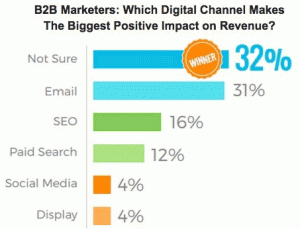 Pay-per-click (PPC) advertising can be a very effective tool that small and medium-sized businesses can use to reach consumers online and ramp up leads quickly. But most companies that have tried pay-per-click haven’t seen the results they expected, and many companies have written of paid search altogether because of this.
Pay-per-click (PPC) advertising can be a very effective tool that small and medium-sized businesses can use to reach consumers online and ramp up leads quickly. But most companies that have tried pay-per-click haven’t seen the results they expected, and many companies have written of paid search altogether because of this.
Pay-per-click campaigns can get expensive fast, so it’s best that you’re armed with information so you set your campaigns up properly and blow through budget quickly. Like most things, planning is crucial and worth your time up front.
If your company has seen poor results from paid search in the past, you might consider reading these pay-per-click tips and considering if it’s worth another try.
These four tips will help you get more out of your PPC campaigns and avoid wasting money on ineffective ads and keywords.
1. Encourage Action
Encouraging a searcher to take action is very important to pay-per-click advertising. Making sure there’s a call to action and a relevant reason for someone to click in your ad copy will help your ads perform better.
When thinking about how to actually get a searcher to take action, consider this: You may also want to test put your phone number in your ad. While most people are not ready to buy when they search, there will be a few that may be ready and call directly.
Always double-check your ads to make sure they are 100% accurate. Even a small error could turn away potential buyers and earn your company a bad reputation.
2. Link to the Right Page
Because you’re paying for every click, make sure potential buyers are sent to the appropriate landing pages.
For instance, if your ad copy is about custom home floor plans, but the ad clicks to a your homepage, then you’ve wasted your money and your audience’s time.
Most people are not ready to buy when they search. Give them information instead that will further the sale.
You don’t want people to simply visit your site; you want them to visit and become a contact or lead. This is why your ad should almost never click to your homepage – it’s almost never got the specific information that people are looking for.
3. Track Your Keyword Performance
As you run ads and can see some patterns form, devote your budget to PPC keywords that give you good returns on investment.
This may mean that you have to shift budget from one ad or keyword to another. This is why monitoring your paid search campaign and being willing to change things on the fly is so important.
It isn’t just about measuring the number of clicks that a keyword gets; it’s about measuring the effect it has on your sales. Google AdWords gives each keyword a Quality Score that makes it pretty easy to determine which ones work well and which don’t.
If you only pay attention to one metric when setting up your campaign, focus on the Quality Score. AdWords also gives you ratings for click-through rates, landing pages and ad relevance. The better the scores are, the more likely you’re getting your money’s worth.
4. Utilize Google’s Negative Keywords
Adding negative keywords to your campaign can save you a lot of money, but most companies overlook this feature.
AdWords lets you create a list of negative keywords that will prevent your ad from appearing on searches that include unwanted words.
For instance, if you find that people searching for “free vacuum repair quotes” never spend money at your site, you might want to add “free” to the negative keywords list. People will then see your ad when they look for “vacuum repair quotes” but not “free vacuum repair quotes.”
Running a successful PPC campaign takes some experience, but these tips should help you create effective strategies that will help your business get more sales opportunities without spending too much money on online advertising.
Digital & Social Articles on Business 2 Community(176)
Report Post







